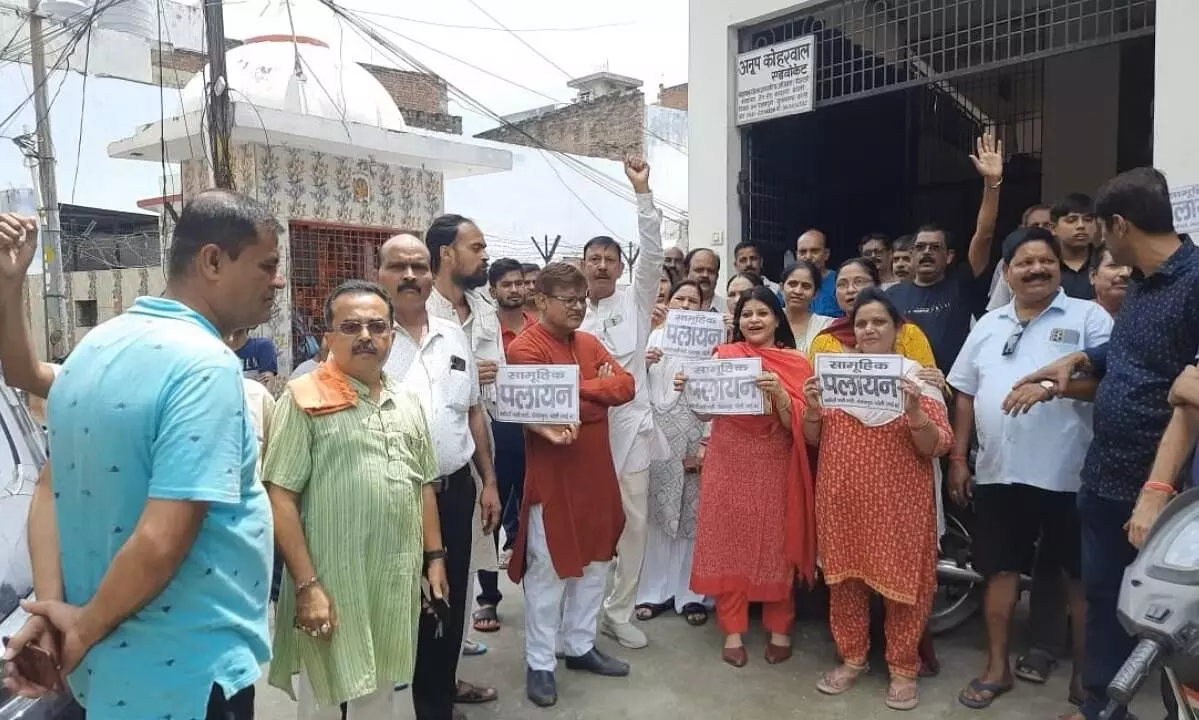
After Gujarat, Hindu residents object to Muslim woman buying house in their locality in UP
text_fieldsIncidents of Hindus objecting to Muslims buying plots and houses in their locality are reportedly increasing, while authorities remain inactive. This was exemplified in Bareilly, Uttar Pradesh, where Hindu residents of Punjab Pura demanded that the authorities annul the registration of a house bought by a Muslim woman, threatening a mass exodus if their demand was not met.
The unrest began in Punjab Pura, also known as Vakeelon Waali Gali, after Vishal Saxena, a former resident, sold his property to Shabnam, a Muslim woman who has since taken up residence in the area, according to a report by The Wire.
The protesters, many of whom are lawyers, threatened a mass exodus if their demands were not met, with some residents placing posters on their doors declaring a "samuhik palaayan" (mass exodus).
Arvind Srivastava, the ex-secretary of the Bar Association of Bareilly, spoke to local media, alleging that the sale involved an Assamese maulana, who he claimed was illegally occupying a nearby mosque. He further suggested that the transaction could lead to "love jihad," a term used by Hindu communal organisations to describe what they perceive as a conspiracy by Muslims to seduce Hindu women and convert them to Islam.
One of the Hindu residents was quoted by The Wire as saying that they fear an influx of Muslims in the area, which could lead to 'Love Jihad'. 'Love Jihad' is a term used by Hindu communal organisations to describe what they perceive as a conspiracy by Muslims to seduce Hindu women and convert them to Islam.
He expressed concerns over the involvement of Bangladeshis and Assamese individuals in the area, referencing statements by the Prime Minister and Chief Minister discouraging their presence in the region. He questioned who would be responsible if the situation escalated into what he described as "love jihad."
The protests have raised concerns among Hindu residents, particularly women, who expressed discomfort with the presence of Muslims in the neighbourhood. One woman mentioned that while they used to sit outside their homes until late at night, the arrival of Muslim residents has made them uneasy.
Another resident cited differences in dietary practices, pointing out that while they follow a satvik (pure) lifestyle, Muslims consume meat. Concerns were also raised about the potential impact on their children’s future, with one woman suggesting that Muslims might interfere in Hindu religious practices and festivals.
In response, Shabnam's brother, Mohammad Naseem Bashiri, who sells flowers at a nearby dargah, expressed his disappointment with the protests. Speaking to local media, he stated that had they been informed earlier, they would have considered selling the house back to the residents.
Bashiri stressed that he had no ill intentions and was open to resolving the matter peacefully. He also mentioned that he had communicated this to the inspector at the local Qila police station.
Some residents have expressed disdain over the prospect of a flower seller moving into the area, fearing the kind of people that might start frequenting the neighbourhood. The locality, which is home to what many describe as an "educated class of citizens," appears to be grappling with the social changes brought about by the sale.

















